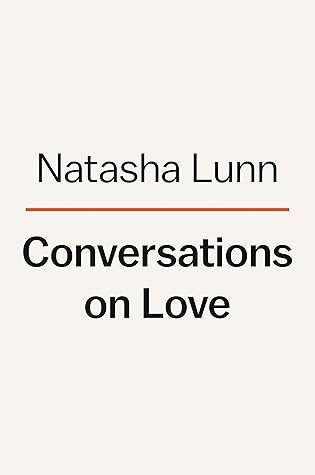More on this book
Community
Kindle Notes & Highlights
by
Natasha Lunn
Read between
August 23 - August 26, 2023
That makes me think idealizing someone is the opposite of love, because it means refusing to see the whole of them? Yes, you’re not witnessing them properly. No one really wants to be idealized – we want to be seen and accepted and forgiven, and to know that we can be ourselves in our less edifying moments. So to be on the receiving end of somebody’s idealizing feelings is alienating. It looks like we’re being seen and admired like never before, but actually, many important parts of us are being forgotten.
The important thing, she explained, was not to make the ‘right’ or ‘best’ decision, but ‘to closely bind yourself to whatever you’re living’. She said, ‘You make your life meaningful by applying meaning to it – it’s not just inevitably meaningful as a result of the choices you’ve made.’ We were discussing this in the context of choice, but I think it applies to circumstance too. The romantic relationship or family I wanted would not make my life meaningful; only I could.
Maybe, then, this is how you try to bear the burden of the mystery with grace: by finding humility where you once saw self-pity, and opportunity where you once saw absence. By saying, ‘Even if I don’t get what I want, I have a good life,’ then paying closer attention to the small details that make that life beautiful. And by never forgetting that not knowing what will happen next also means that anything could.
But how do you find the tricky balance between active effort, hope and acceptance? You do the things you need to do, but you try to do them in a slightly detached way, recognizing there’s an element that is completely out of your control. All you’re doing is showing up with the lightning rod and waiting, without waiting too hard. There’s this dance of expectation and industry and letting go. It’s hard to put language around it because it’s really hard to wait for love. The best advice I have is to try on different positions. Giving up completely is a position that can help, and then absolutely
...more
So how can you ditch the shame and not let longing sap all the happiness from your life? Part of feeling good through an intense period of longing is moving away from your old broken ways of experiencing intensity and towards one that is positive and thrilling. How do you take a sad story and live inside it without feeling crazy and sad? It can be helpful to go to the worst possible version of where you are and say, ‘Well, what would I do if this didn’t work out at all? What choices would I make if I knew ten years from now that nothing would ever come of this and I just would never meet
...more
The truth is you don’t ever really choose a person, because they change, and your lives do too. So when you’re choosing a partner what you’re really choosing is how a person weathers change. You’re choosing how you weather change with and alongside them.
This is at the core of why desire is bullshit. I would love people to stop putting desire at the centre of their definition of sexual well-being, because all it means is that you’re motivated to engage in sex – regardless of what the motivation is – and often that motivation may be slightly twisted, or not good for you.
Why, then, do we fixate on spontaneous desire as a measure of a good sexual relationship? I’ve wondered this a lot and I don’t have a science-based answer. I think it’s partly to do with desire being an optimal state for capitalism. You have to continue wanting things so you continue consuming, so you continue stimulating the economy. There’s a baseline sense that being constantly full of desire is the appropriate state to be in, which is bizarre, because isn’t desire just dissatisfaction for what we currently have? Why is that the goal?
I don’t think that love is the only thing that matters. My favourite version of the meaning of life is what Viktor Frankl wrote on the topic. He says there are three sources of meaning: love (for humans and for experiences, like a sunset), purposeful work (what you’re trying to do in and for the world), and the courage you find in the face of difficulty. It’s not just about sitting around loving each other; the way you respond to unavoidable suffering is also a source of meaning.


